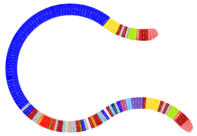Clinical Studies
-
Effect of experimental hookworm infection on insulin resistance in people at risk of Type 2 Diabetes
Metabolic syndrome/type 2 diabetes
DOI: doi: 10.1038/s41467-023-40263-4
This publication details the results of the first ever clinical trial of hookworm infection in people at risk of Type 2 diabetes. The paper describes the safety and potential efficacy of hookworm treatment on improving metabolic parameters such as insulin resistance, blood glucose levels and body weight.
-
Randomized, Placebo controlled trial of experimental hookworm infection for improving gluten tolerance in celiac disease
-
Experimental hookworm infection and gluten microchallenge promote tolerance in celiac disease.
-
Suppression of inflammatory immune responses in celiac disease by experimental hookworm infection
Celiac disease
DOI: 10.14309/ctg.0000000000000274
This is the clinical study report of a multi-national randomised controlled trial of hookworm treatment for celiac disease, a gluten-sensitive autoimmune disorder of the small intestine. The results demonstrated that while hookworms cannot cure celiac disease, since placebo and hookworm-treated patients displayed equivalent pathology after high levels of gluten challenge, hookworm-treated people exhibited improved tolerance to lower gluten challenges.
DOI: 10.1016/j.jaci.2014.07.022
This open label clinical trial demonstrated the potential efficacy of treating people with celiac disease with low doses of hookworms to restore gluten tolerance. Hookworm-treated patients displayed remarkable tolerance to escalating gluten challenges, correlating with suppression of gut-resident proinflammatory T cell responses, and expansion of regulatory T cells.
DOI: 10.1371/journal.pone.0024092
Results from the first clinical trial of hookworm treatment in celiac disease patients showed that while hookworm treatment was no better than placebo at limiting pathology after an abrupt, high level gluten challenge, hookworm treatment caused reduced levels of pro-inflammatory cytokines such as IFN-γ and IL-17A in the gut, and stimulation of regulatory(IL-10 and Foxp3+ Tregs) and Type 2 (IL-5) immune responses.
-
A proof of concept study establishing Necator americanus in Crohn's patients and reservoir donors
INFLAMMATORY BOWEL DISEASE
This was the pioneering clinical study undertaken by Macrobiome Therapeutics clinical gastroenterologist collaborator Dr John Croese regarding treatment of Crohn’s Disease patients with the human hookworm Necator americanus. The small open label clinical study showed that treatment with hookworms was well-tolerated and resulted in reduced Crohn’s Disease Activity Index (CDAI) scores.
